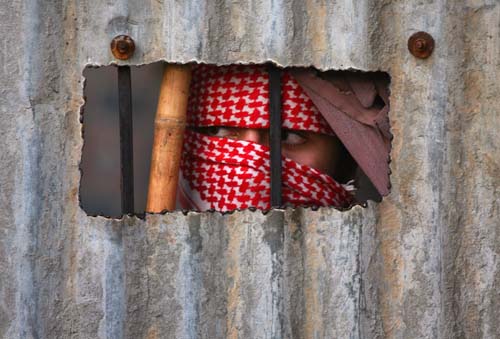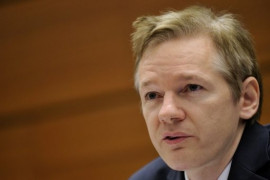
Pierre Borghi was kidnapped in late November and released in Wardak province outside the capital on Sunday night, Afghan officials said, while the second released man, who has not been named, was taken captive in Kabul on January 27.
Officials in Kabul who declined to be identified said that the two men had been held separately and gave no explanation of why they had been released on the same day.
"Two of our compatriots kidnapped in Afghanistan have been released. We welcome their freedom," Philippe Lalliot, spokesman for the foreign ministry in Paris, told AFP.
Borghi, 29, worked in Afghanistan from 2011 to 2012 for French charity Solidarites International and returned to Kabul last year to take photographs and try to establish himself as a photographer.
"Yes, (Borghi) has been released, he was found by our guards in Maidan Shar town last night at around 9:00 pm local time," Shoib Sharifi, director of the Afghan Public Protection Force, told AFP.
The APPF is a government-run security group founded in 2009 to provide protection for international and domestic clients across Afghanistan.
Sharifi said the Frenchman had escaped. "He was found near one of our check posts in Maidan Shar. Our guards brought him to Kabul."
Borghi was taken to the interior ministry and later handed over to the French embassy.
Wardak province is a hotbed of the Taliban-led insurgency, but there has been no claim for the kidnapping. The details of how he was abducted are unknown.
Borghi's personal website said he trained as a sociologist and urban planner and moved into photography after several years working for humanitarian organisations.
The second released man worked for ACTED (the Agency for Technical Cooperation and Development), a Paris-based non-governmental organisation founded in 1993.
The 30-year-old was taken captive in January in Kabul when the unmarked ACTED car he was travelling to work in was blocked by another vehicle. Four armed gunmen then dragged him from the car.
"ACTED is very happy about the release of one of its employees in Afghanistan, he is fine," its spokesman Adrien Tomarchio told AFP, declining to give the man's name.
There was also no claim of responsibility for his kidnapping.
Westerners have been taken hostage regularly in Afghanistan since the US-led invasion brought down the Taliban regime in late 2001, with victims often kidnapped by criminals and sold on to militants.
Two French journalists were captured while covering the conflict in December 2009 and finally freed in June 2011 after 18 months in captivity.
One of the men, television reporter Herve Ghesquiere, later suggested that an exchange deal involving money and prisoners secured his release from the Taliban.
The French and Afghan governments both denied that a ransom was paid for the release of Ghesquiere and cameraman Stephane Taponier.
The last known foreign hostage incident was at the end of last month when a German man working for the German government-owned aid group GIZ was freed after being kidnapped for less than 24-hours in northeastern Afghanistan.
The man was taken by suspected Taliban militants in the mountainous Badakhshan province while out jogging with his dog, police said.
Last June Nato special forces rescued one British and one Nigerian woman held hostage in a cave in Badakhshan.
The women, who worked for Swiss-based charity Medair, and two Afghan colleagues had been held for about a week before they were freed unharmed.
In August 2010 the Taliban claimed responsibility for killing eight medical aid workers in Badakhshan, claiming they were Christian missionaries.























1714129906-0/Clint-Eastwood-(1)1714129906-0-270x192.webp)
















1714024018-0/ModiLara-(1)1714024018-0-270x192.webp)









COMMENTS
Comments are moderated and generally will be posted if they are on-topic and not abusive.
For more information, please see our Comments FAQ